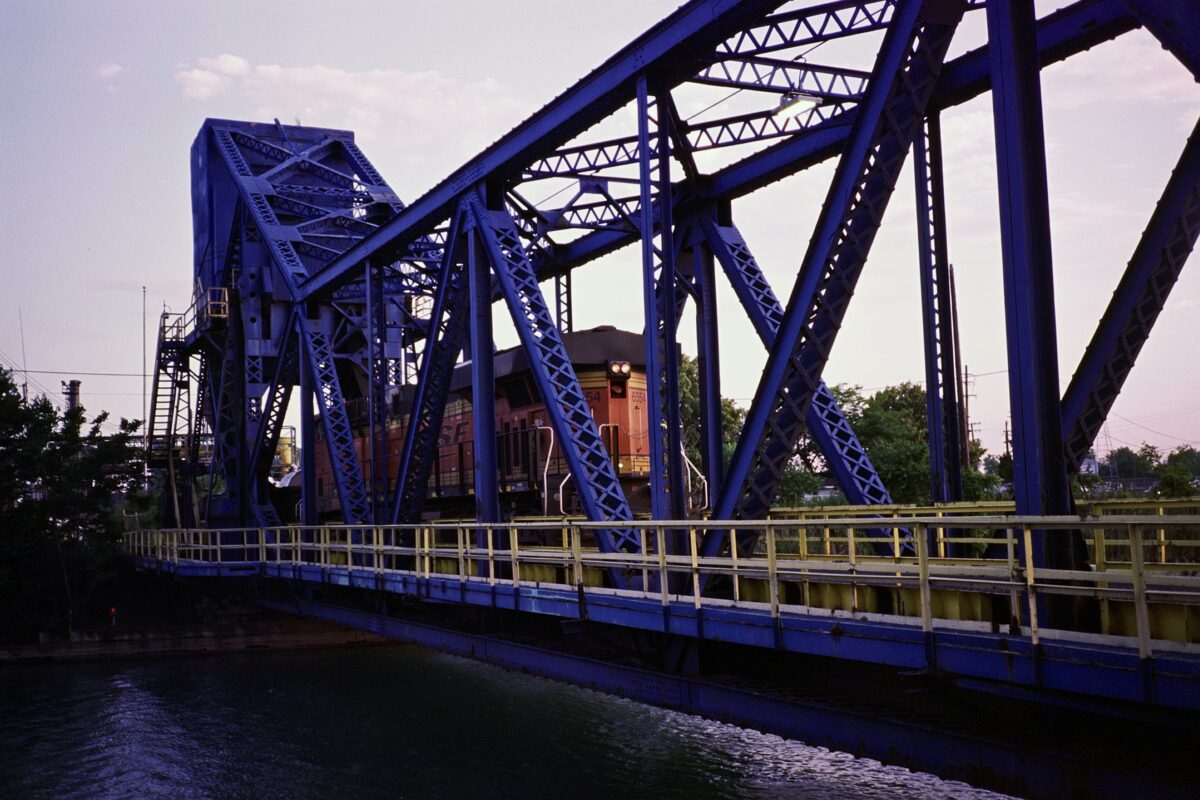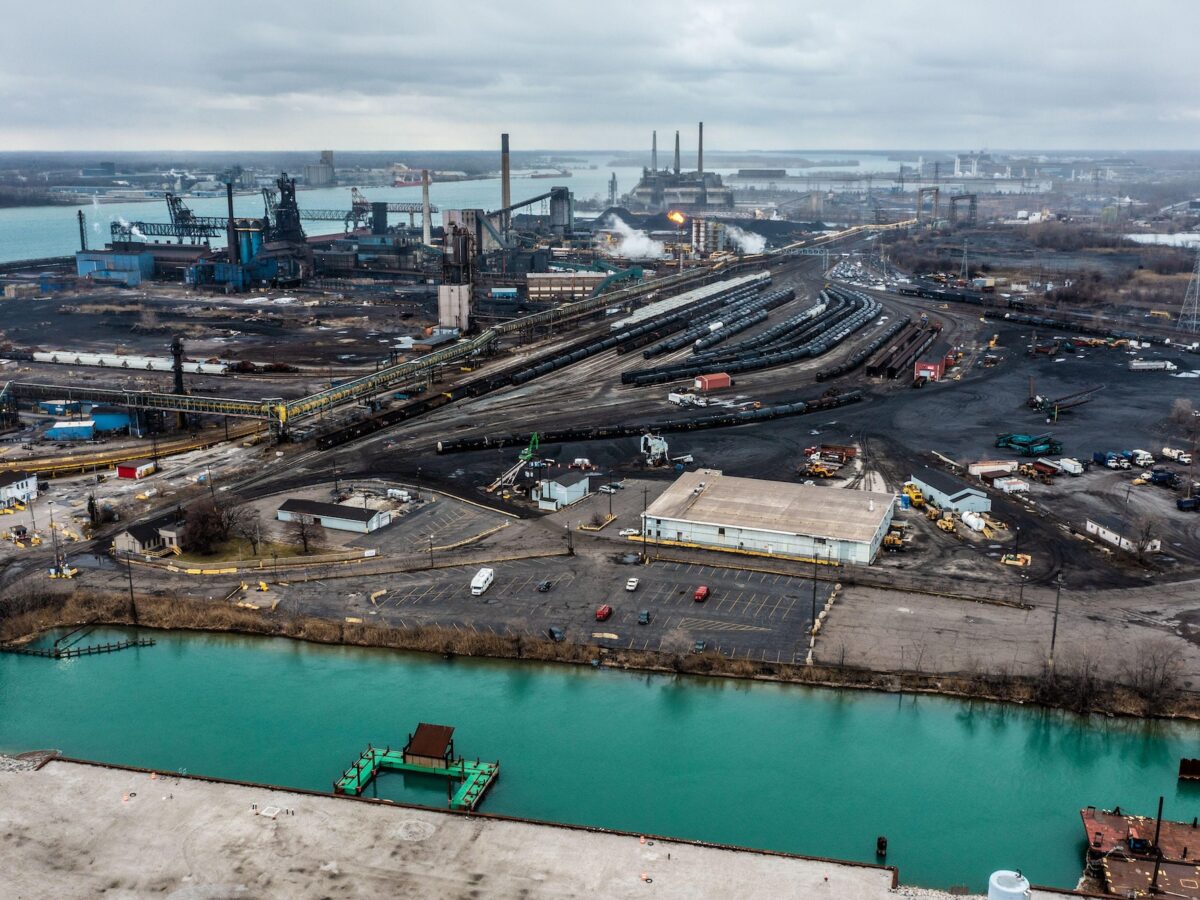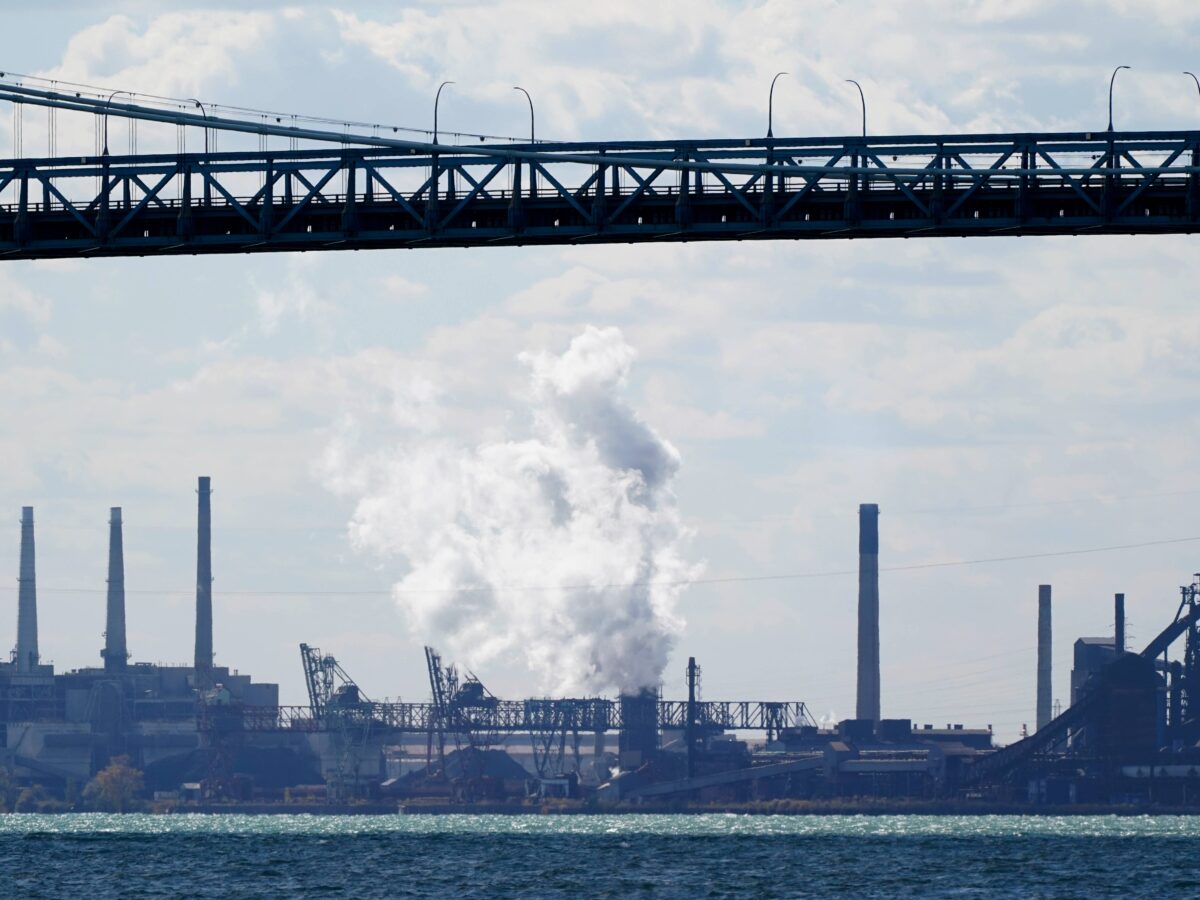Overview:
-An EPA lawsuit against EES Coke Battery asks for civil penalties of up to $109,024 per day for Clean Air Act violations.
-EES Coke Battery is the fifth-worst polluter in the state for sulfur dioxide emissions and fourth-worst for fine particulate matter, according to a report released last year by an advocacy group.
-The Zug Island facility filed for a Clean Air Act exemption offered by the Trump administration in May.
This story was produced with support of Internews’ Earth Journalism Network.
DTE Energy should not be liable for its subsidiary on Zug Island, EES Coke Battery, an attorney for the utility argued Monday in federal court.
An EPA attorney said DTE has ultimate control over the business and EES Coke Battery has “zero authority.”
The statements came in a hearing on a federal lawsuit filed by the Environmental Protection Agency in 2022 against EES Coke Battery. DTE Energy was added as a defendant in the lawsuit last year.
The lawsuit alleges that EES Coke Battery’s coke oven facility violated the Clean Air Act, emitting thousands of tons of the air pollutant sulfur dioxide.
The EPA said the company emitted more pollution than its revised 2014 permit allowed and brushed aside legal requirements to install pollution controls, worsening the air quality and health of nearby residents.
In its original complaint, filed June 1, 2022, the EPA asks the court to forbid the operation or modification of the coke oven battery unless EES Coke follows the Clean Air Act and other regulations.
The court should order EES Coke to apply for New Source Review permits for each pollutant illegally emitted, install pollution control technology, “remedy, mitigate and offset” harms to public health and the environment, and fine EES Coke a civil penalty of up to $109,024 each day for each violation, the EPA said in the complaint.
EES Coke Battery is the fifth-worst polluter in the state for sulfur dioxide emissions and fourth-worst for fine particulate matter, according to a report released last year by advocacy group Industrious Labs. The facility filed for a Clean Air Act exemption offered by the Trump administration in May.
In a February motion for summary judgment, DTE said it cannot be held liable for the Clean Air Act claims against EES Coke Battery.
MORE PLANET DETROIT REPORTING
Michigan regulators approve air pollution permit for Zug Island coke facility
Michigan regulators greenlight permit for a coke screener at DTE Energy-owned EES Coke Battery on Zug Island.
State regulator asks EPA to redesignate Wayne County’s compliance with sulfur dioxide standards
The EPA will review the request and decide whether it meets Clean Air Act requirements, and the federal agency has 18 months to approve or deny the request
EPA offers Clean Air Act exemptions from Trump, and one of metro Detroit’s top polluters applies
A new EPA policy under the Trump administration could let over 500 facilities nationwide sidestep pollution controls for two years, a move that critics say endangers millions of Americans.
Who’s in charge of EES Coke Battery?
The EPA’s position of holding the parent company liable would “destroy” the point of corporations, and “pierce the corporate veil,” Michael Hindelang, an attorney representing EES Coke Battery, LLC, and DTE Energy Co, DTE Energy Resources, LLC, and DTE Energy Services, Inc., said Monday.
In its response to the EPA’s original complaint, EES Coke said its ultimate corporate parent is DTE Energy Co.
The plaintiffs said they found through discovery that three DTE entities were “heavily involved in the environmental decision making that led to the violations” and argued the entities, along with EES Coke, are legally responsible under the Clean Air Act, U.S. District Judge Gershwin Drain said in a May 2024 order granting the EPA’s request to add the DTE defendants to the case.
Key decisions at EES Coke are mostly made by employees from DTE companies, the EPA said in court filings. People in charge of evaluating pollution controls were employed by DTE Energy Services, not EES Coke; air permits and environmental compliance were handled by DTE Energy Resources employees; all the managers running the facility’s daily operations work for DTE Energy Services; and the decision-making process at the facility goes through DTE Energy, according to the environmental regulator.
An employee of DTE Energy was responsible for environmental permitting at the coke oven battery, including the 2014 permit revision that led to the federal lawsuit, according to the EPA’s amended complaint.
Sasha Alvarenga, an attorney representing the United States, said an environmental engineer for DTE Energy Resources worked on the 2014 permit application.
Alvarenga showed an organizational chart at Monday’s hearing and said employees of DTE Energy Services make decisions at the Zug Island facility.
Ronald Burnette, who worked as a plant manager at the facility from 2008 to 2015, was responsible for operations, she said. Under a 2008 management services agreement, DTE employees conduct day-to-day operations, handle environmental health and safety, and more, she said.
DTE Energy has the ultimate decision over the business, and EES Coke has “zero authority” and no bank account, she said.
DTE lawyer Hindelang disputed Alvarenga’s organizational chart and said there’s “no direct line.”
Drain asked Hindelang if the employees in Alvarenga’s chart still provide services for EES Coke. Hindelang said EES has officers who contract labor, and that “the government skips this.”
The judge asked whether DTE entities operate facilities. Hindelang said no, the parent company is not liable for its subsidiaries.





